Lucie Höflich
Nacimiento : 1883-02-20, Hannover, Germany
Muerte : 1956-10-09
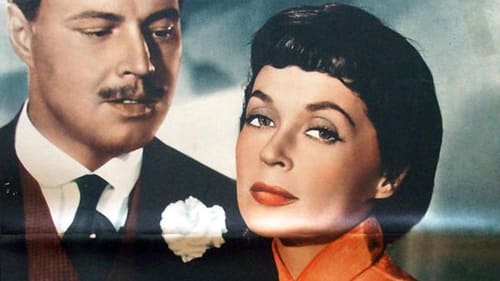
Frau Bäumle
In 1920, an unknown 24-year-old woman was fished out of Berlin's Landwehr kanal after a suicide attempt. Since she has no papers and no answers to any questions, they soon assign them to the insane asylum Dallendorf. A co-patient believes she recognizes the Czar's daughter Anastasia Romanowa - who apparently was the only one who survived the murder of the tsar's family in 1918.

Mutter Kaminski
Anna es trabajadora de una fábrica en Alemania Oriental. Su hijo Jochen, de cinco años, vive con sus abuelos en el oeste y Anna quiere que viva con ella, por lo que lo secuestra. En el camino conoce a Carl, quien la ayuda con su hijo y se enamoran.

Emilia

Frau Blume, Vermieterin

Wirtin Frau Klebusch
A player on a soccer team, where everyone matches together just perfectly, has fallen out of a championship tournament due to illness; which leads to a big problem: who would be the perfect man to replace him? Werner Fehling appears to be the perfect replacement for the sick man. The problem is, he's a bitter rival of the goalkeeper, Jupp Jaeger. Both men love the same girl, Grete Gabler. Grete is the daughter of a senior member of the sports club, which is why she feels doubly under pressure not to do anything to jeopardize the success of the team.
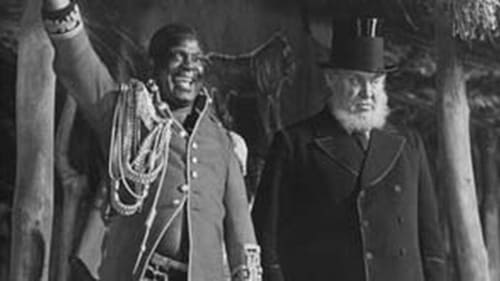
Sanna Krüger
Ohm Krüger (English: Uncle Krüger) is a 1941 German biographical film directed by Hans Steinhoff and starring Emil Jannings, Lucie Höflich and Werner Hinz. The film depicts the life of the South African politician Paul Kruger and his eventual defeat by the British during the Boer War. It was the first film to be awarded the 'Film of the Nation' award. It was re-released in 1944

Baroness Margit O'Connor
An English peace judge in an Irish district is married to an Irishwoman. She is a caring patriot. He is heavily indebted by a life of luxury, and doesn't shy away from dark deeds to maintain his lifestyle. Anti-Britsh propaganda film.

Kochs Patientin Frau Paul
Country Dr. Robert Koch is desperate: a tuberculosis epidemic is decimating the children in his district and no one is able to do anything about it. Every fourth child is already sick and the parents must helplessly watch as their young ones die. Now Koch is undertaking to find the cause of the tuberculosis --- something he has already been working on for years --- which has been causing this plague of illness. His work is made more difficult by envy; for example, that of his teacher, who was wounded defending his honor. But his greatest obstacle is the famous Berliner scientist and Reichstag deputy, Privy Councilor Rudolf Virchow: He is extraordinarily skeptical of Koch's theory, that the cause for tuberculosis is a bacteria.

Jenny Hill

Frau Kaaden
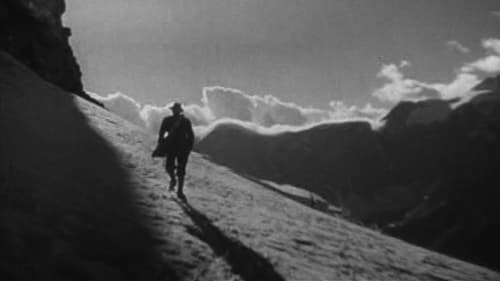
Mutter Carrel
The Italian mountaineer Carel wants to be the first man to stand on the top of the Matterhorn. Since the climb is very difficult, he agrees to try it together with the British mountaineer Whymper. But due to an intrigue this agreement is dropped and the two man try it on the same day with two different teams and then disaster strikes.

Two brothers (Albert Matterstock and Attila Hoerbiger), who are trapeze artists, are getting along just fine until Hoerbiger runs off with his brother's wife. Matterstock isn't very pleased when his wife is killed.

Barbara Morell

Frau Büttner
In 18th century Europe, King Friedrich II of Prussia leads his army through the seven-years-war with neighboring states, and after numerous near defeats, eventually brings a victorious army back to Berlin.

Frau Welgorska
Considering Germany's own treatment of Poland in 1939, it is ironic in the extreme that the 1938 German film Um Freiheit und Liebe (For Freedom and Love) is a celebration of Poland's declaration of independence from Russia. Werner Hinz plays Konrad, an idealistic Polish student who courts disaster for his loved ones through his constant harrangues against Russian impression. When his mother promises the authorities that Konrad will cease his protests, he is honor bound to obey her, no matter what the provocation. Drowning his disappointment in liquor, Konrad falls in love with nightclub singer Anna Sasotska (Viktoria von Ballasko). While he never achieves his political goals, Konrad at least finds happiness romantically. The climax of the film is particularly exciting, even though it is motivated by anti-Russian (and implicitly pro-Nazi) propaganda.

Anna, Wirtschafterin bei Betty Gall

Frau Appelquist

Marfa, Michaels Mutter

Dienstmädchen Rosa

Aase, Peers Mutter

Mutter der Frau
One autumn, Edgar, a 12 year old boy, spends a holiday with his mother at a plush hotel in Switzerland. His father, a busy lawyer, remains at the family home in Vienna. When he sees a stylish motorcar pull up at the hotel, Edgar wastes no time befriending its owner, an amiable dandy. The latter pays more attention to the boy’s mother than to the boy himself, and decides to use Edgar to wheedle his way into her affections. When Edgar realises he has been used, he is far from happy...

Wencks Mutter

Gildemeister's Mutter
When Albers takes his drug-addicted opera star sister Gerda to a sanitarium, they both become targets of slimy dope peddler Peter Lorre, who fears that Gerda will blow the whistle on him. Lorre kidnaps the woman, leading Albers on a frantic chase.

Minna Müller
Paulus van Geldern is a lawyer who has made a name for himself as a criminal defense attorney, but is notoriously short of funds due to his unbridled passion for gambling. His gambling causes problems with his marriage to Martha who is thriving.

Alexandra
The film focuses on the leadership of the Great Powers of Europe in the days leading up to the outbreak of the First World War.

Frau Wolff

Köchin Tob
The gorgeous 40-year-old Elsie Lindtner lives in a beautiful house, and is married to a respectable university professor. And yet, there’s something that nags her. She’s about to reach “the dangerous age”, when beauty begins to fade and boredom kicks in. She falls in love with a younger man and divorces her husband, but ends up hiding away in a country house where she can age in secret.

Austrian actress Mady Christians stars alongside German matinee idol Willy Fritsch in this adaptation of the Oscar Straus operetta about a Prince who, after falling for a Viennese girl, becomes obsessed with the city and its customs.
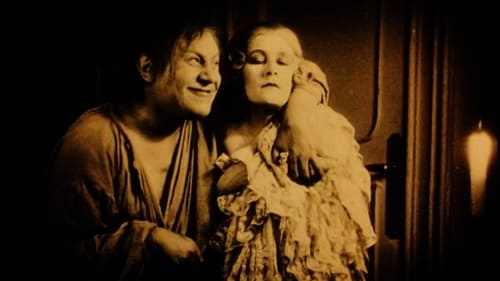
Dorine
Fábula moral basada en la famosa comedia de Moliere sobre la hipocresía de un hombre que quiere adueñarse de una gran fortuna.

Götz von Berlichingen's wife

Herzogin-Mutter

Countess Benrat
One of the first movies made about the fairy tale Cinderella. The film is part of the current German expressionism. Because of that the film ends up being darker than the fairy tale itself.

A Glass of Water (German: Ein Glas Wasser) is a 1923 German silent historical film directed by Ludwig Berger and starring Mady Christians, Lucie Höflich and Hans Brausewetter. It premiered at the UFA-Palast am Zoo on 1 February 1923. It was based on a play of the same title by Eugène Scribe, set in England during the reign of Queen Anne. The film was very well received both commercially and critically on its release. It is considered one of the milestones of Weimar cinema
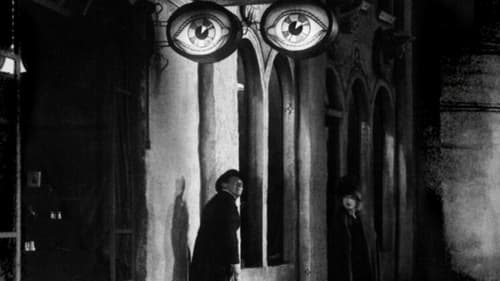
Frau
La calle, es un testimonio directo de la crisis moral que atraviesa la nación alemana. Es la historia de un funcionario que se ahoga en su vida familiar y se siente irresistiblemente atraído por la vida nocturna donde es seducido por una joven. El drama se desarrolla en una sola noche en la cual, el protagonista es acusado de asesinato.


Die Ratten was produced by actress and singer Grete Ly. Her company, Grete Ly-Film, made five films between 1919 and 1921. Die Ratten, which is based on the play of the same name by Gerhart Hauptmann, was the last one. Hauptmann, one of the most important promoters of literary naturalism, had received the Nobel Prize for Literature in 1912.
The screen adaptation of his play is beautifully photographed in a realistic style by Karl Freund, one of best German cameraman of that time who also worked with directors such as Lang, Murnau, Dreyer, Dupont and Ruttmann. Moreover, the cast of Die Ratten also acts in a very naturalistic way, far from the affected expressionistic style. Die Ratten was made on a modest budget, but the collaboration of an excellent team produced a film that was ahead of its time.

Anna Kathrins Mutter

Jacques Lantier, the "human beast" of the title, has a hereditary madness and has several times in his life wanted to murder women. At the beginning of the story he is an engine driver, in control of his engine "La Lison". His relationship with "La Lison" is almost sexual and provides some degree of control over his mania.

Catherine the Great
The film was an epic portrayal of the life of Catherine the Great of Russia.

A psychological escapade when romance overwhelms.

Based on a Victor Blüthgen's novel, the story tells the tragedy of Gendarm Möbius and his only daughter Stina. Having an affair with Lohmann, Stina gets pregnant. She secretly goes to the city to have her baby. But it is born dead. She comes back home. [The film starts from here.] She finds that her lover Lohmann got engaged and the wedding will be celebrated the next evening. Getting mad, Stina sets fire to Lohmann's house in his wedding night. She is caught by her own father Gendarm Möbius: on account of the family honor, they choose their own death.






















